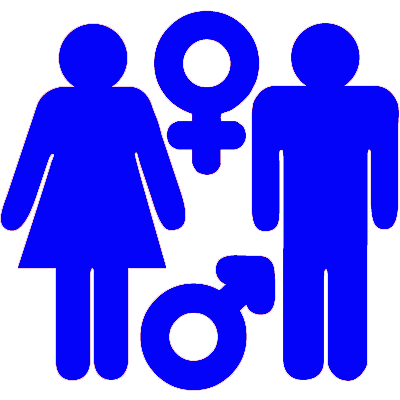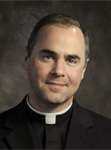
By Rev. Paul D. Scalia
Last week we considered the role of the Church’s social teaching in the public square. Now we consider in particular the Church’s teaching on “gender identity.” At any rate, that is how many people would frame it. In fact, the Church has no teaching on “gender identity” per se. She has doctrine on the human person and, therefore, on human sexuality. It is within that teaching that we find authoritative guidance on how to think as Catholics about the transgendered issue. And it is not only for Catholics. This teaching on the human person – although confirmed, deepened, and defended by divine revelation – is nonetheless entirely accessible to human reason. We can identify three principle points of this teaching.
First, the human person is created. “Man does not create himself,” Pope Benedict bluntly stated. Yes, we have arrived at such a point that this needs to be said. To be created means to accept ourselves as possessing a certain nature and design – those defining features that make us human. Shortly before his resignation Pope Benedict described the current situation:
The words of the creation account: ‘male and female he created them’ (Gen 1:27) no longer apply. No, what applies now is this: it was not God who created them male and female – hitherto society did this, now we decide for ourselves. Man and woman as created realities, as the nature of the human being, no longer exist. Man calls his nature into question. From now on he is merely spirit and will. The manipulation of nature, which we deplore today where our environment is concerned, now becomes man’s fundamental choice where he himself is concerned. From now on there is only the abstract human being, who chooses for himself what his nature is to be.”
Pope Francis returned to this same point – and quoted his predecessor at length – in both Laudato Sí (155) and last fall’s speech to the United Nations. This is indeed the most fundamental principle. If we do not accept humanity as a created nature with certain essentials and defining characteristics, then we will claim complete authority over ourselves and become our own creators.
Second, the human person is body and soul. The human person is not a soul with a body, but the body and soul as one organic whole. [I]t is because of its spiritual soul that the body made of matter becomes a living, human body; spirit and matter, in man, are not two natures united, but rather their union forms a single nature (CCC 365). The body is essential to who one is.
On this point – the union of body and soul – many go astray. Most in our society would see the human person as a soul with a body. The body is a mere possession, incidental to the person. Thus transgender advocates argue that certain people are one gender physically and another interiorly. This posits an opposition between body and soul that has no place in the Catholic understanding of the human person. Pope Francis has spoken out against this “ideology of gender” that would divide soul from body, the spiritual from the physical. In Amoris Laetitia he clarifies: “It needs to be emphasized that ‘biological sex and the socio-cultural role of sex (gender) can be distinguished but not separated’” (AL 56).
Third, the human person is male and female. This truth, confirmed by divine revelation (cf. Gen 1:27), is known by human reason. “Being man” or “being woman” is a reality which is good and willed by God (CCC 369). Further, this “being man” or “being woman” does not apply to the body and soul differently but to the body/soul unity. It is the entire person – body and soul – who is either man or woman, male or female.
It might be helpful to make note of another dimension of the human person that the Church sheds light on: our wounds. Reason looks at creation and sees not only a design, but also that not everything lives according to its design. The Church’s teaching on the human person confirms and deepens this: original sin brought about a rupture of harmony between body and soul. In place of the harmony we know we should have in our body/soul unity, we experience a disharmony, a conflict between body and soul.
This doctrine on our fallen human nature provides the context for understanding the division some experience between their physical sex and their “gender identity.” Thus we do not make light of it. But, acknowledging it as a departure from the design of our created nature, neither do we affirm it as good.
See this USCCB resource for more texts on this issue.

Rev. Paul D. Scalia is the Episcopal Vicar for Clergy in the Diocese of Arlington and Chairman of the Board of Directors for Courage, International.